Luke Haines - Interview
by Denzil Watson
published: 31 / 7 / 2013
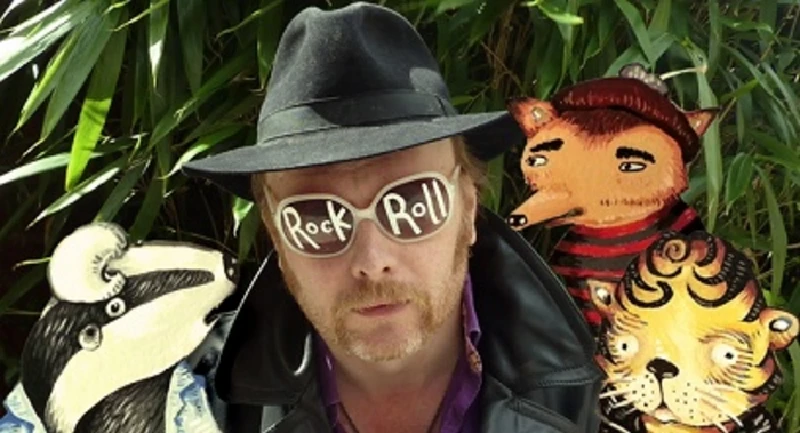
intro
Ex-front man with the Auteurs and Black Box Recorder Luke Haines speaks to Denzil Watson about his fifth solo album ' Rock and Roll Animals', a concept record for adults and children
'The Quietus' recently described him as the “Woody Allen of indie pop”. He has also been described as a “national treasure”, and is held up by many a critic and his devout fans as one of Britain’s greatest living songwriters. He dented the charts with his Brit-pop era indie outfit the Auteurs in the early 90s, and then again at the start of the next decade with Black Box Recorder. Since then Luke Haines has gone solo penning Brit-flick soundtracks, songs about Gary Glitter, an album dedicated to wrestling as well as penning two well received memoires and being the subject of a film entitled 'Art Will Save the World'. The Walton-on-Thames born singer and song-writer has just released his fifth solo album proper, 'Rock and Roll Animals', which is perhaps best described as a psychedelic tale for adults and children. When Pennyblackmusic caught up with Luke for an extensive interview to coincide with of the album’s release, he was in ebullient form. PB: My three year old son is loving the new album. Was this a conscious effort to break into the children's market? LH: It was half conceived as an album for children. I say that on the sleeve notes. What happened is that I had this kind of obsession with these three characters which were Jimmy Pursey, Nick Lowe and Gene Vincent, the long dead rock and roll icon. And the thing that kind of drew them all together was they were all affiliated to my home town and place of birth, Walton-on-Thames. Jimmy Pursey is from Hersham which is about a mile away but Sham 69 were based a lot in Walton-upon-Thames. Nick Lowe was born there, I was born there and I found out that when Gene Vincent toured the UK in 1969 and he was down on his luck, in the last throes of severe alcoholism, he actually stayed in a bedsit about two roads away from where I lived at the time when I was about two years old. So I was kind of drawn to this thing and trying to think, as I do tend to try to conceptualise stuff, about how I could write about these three people and the way this is connected. The thing just kind of turned out that if I turned them into animals I could kind of go anywhere I wanted, so that's why they became what they are. And it kind of became an idea to become a children's story book album, bearing that in mind, and then I didn't want to be constrained to the children's album so it half is and it half isn't. PB: You've got a son haven't you? What does he think of it? LH: Well, he's actually singing on it. There are a few kid's choirs and he's part of that. I have committed the terrible crime of children singing on a record. PB: Your wife was involved with the artwork too, wasn't she? LH: Yeah. At one stage I was going to credit it to the Haines Family Band! Make it sound like some sort of cult set-up. PB: My son is only three-and-a-half but he's really connected with it. LH: There have been a few other people's kids that have heard it and they've kind of got into it. I think it's that sonically it sounds like a kid's record, with recorders and stuff, so that's what I think it is. The melodies are quite child-like. PB: My son asked me, “Where is Magic Town?” LH: Well, Magic Town is actually Walton-up-Thames The idea of Magic Town is that it is a scale model and is only about five square metres big. Magic Town is essentially something that I created. I was actually going to try and create a mini-Magic Town for the front cover but I decided to go with some different ideas instead. PB: Is it fair to say that it's your third concept album in two years? LH: Yeah, I guess so. PB: With the Auteurs you were quite a conventional type of band where you'd write an album and tour it, weren't you? LH: Yeah, the Auteurs were a rock and roll unit really. I was in my twenties and writing quite a lot of angsty and angular rock and roll, and now I'm in a very different situation where I can just go kind of further out because there are very few commercial constraints. To most people within the music industry there aren't that many commercial constraints because it's only 0.999% of people who are actually selling any records, so it doesn't really matter what you do. You can kind of fulfil your wildest fantasies in a way. PB: I was going to ask you about what links the characters. I could link Pursey and Lowe but was struggling with Gene Vincent. LH: Unless I hadn't have told you, it's hard to make the connection. It wasn't something I necessarily wanted to put on the sleeve because I knew I could talk about the album anyway. Some people would make the connection, but it is a bit of an A Level quiz pub question. I wanted it to be affectionate as well about Jimmy Pursey in a way because I guess he is not seen as a hugely sympathetic figure now. But when I was eleven and maybe twelve and Sham 69 were having pop hits, he seemed an earnest force for good. And everything he did, he wanted it to be for the kids. And I think he was sincere in that, so I wanted to write something that did him some sort of justice. PB: Do any of the three know about their role on your album at all? LH: No, I don't think so. Hopefully they will do though. When I did the wrestling album t two years ago (‘9½ Psychedelic Meditations on British Wrestling of the 1970s and early '80s’, 2011) quite a few of the ex-wrestlers got in touch with me afterwards which, if you write about real people, that will happen. So you have make the decision about what you are going to write and stand by what you've written. Mark 'Rollerball' Rocco got in touch with me and he was a very sweet man and he was really into it, and there were a couple of others. So hopefully it will be the same thing. PB: And I suppose, in a way, there's a parallel in that it's less fantasy and more factual and it is also quite an affectionate album. LH: Yeah, definitely. PBM: I have to be honest with you. I'm not a big wrestling fan, but because of the album I warmed to the subject matter. LH: When I made the album, I kind of hoped that it wouldn't just be exclusively for people who remembered the wrestling in the late 70s. But then again it was quite niche in that way. PB: Coming back to the album itself, our three furry friends venture up north to pay a visit to ‘The Angel of the North’. LH: No, they don't go up north, the Angel comes down to them. Rather than it being something about the north, and I've written about the north before, it's more about the Angel of the North representing a force of unrighteousness. Mainly because I dislike Antony Gormley's statue so much because it represents public art which is the worst kind of art. Public art seems to me to be totally unrighteous to me. Art shouldn't be about committees of people deciding what things should be, and I don't think there's ever been a good piece of public artwork. So the Angel of the North stands for all things that are unrighteous. PB: I was going to ask you if you had a pathological hatred of the Angel of the North. LH: Yes, but it's more what it stands for than what it is. As a piece of art it doesn't bother me that much, but it's how it has been conceived that gets my goat. So I wanted it to be the force of evil if you like and the three animals represent righteousness. Righteousness and rock and roll is what this album is all about. The three Rs. PB: I loved the "Whose got a dirty face now?" line on 'Angel of the North'. Presumably you're referencing Sham 69's 'Angels with Dirty Faces’?' LH: Oh, yeah. PB: I also liked the name-check for my home town Grantham in the same song as it isn't seen as being particularly righteous! LH: Oh, Grantham, oh, there you go. Not very righteous because of the Thatcher connection. That's because why I kind of threw it in there. It seemed appropriate that somehow the Angel of the North would be seen flying over Grantham. PB: It's a shame everyone forgets about Isaac Newton. LH: Well you are putting me right. Perhaps that gives me grounds for giving Grantham a better rep. PB: I also love the final song ‘Rock ‘n’ Roll Animals in Space’ where you go through some of your favourite prog rock bands and declare them as righteous. I've listened to the lyrics very carefully, and Led Zeppelin are unrighteous because they “stole the blues”, right? LH: Correct, yeah. PB: And the Stones without Brian Jones were also unrighteous too. LH: Yeah, I'm a Brian Jones fundamentalist. I don't really consider anything the Stones did after Brian Jones to be of any worth at all. If you listen to their back catalogue it bears me out on this. Even ‘Let It Bleed’ is quite poor by comparison. PB: What are your favourite tracks of the album? LH: Oh, I don't know. I'm pleased with the way this one turned out. Sometimes you can make an album and you can kind of get lost half way in to it and it can come out not as you intended it, but this one really kind of did. I had a really clear idea even some people may think that the whole thing behind it sounds kind of insane. There was a clear idea and I stuck to it, so it's kind of how I wanted it to sound which is good. PB: You've written two very good books. I just wondered if doing these has influenced the way that you approach writing albums? LH: Only in terms of the first book ‘Bad Vibes’ which worked quite well. It just kind of wrote itself. People think that I must have been in an incredibly vitriolic mood to write it, but I wasn't at all. It just kind of came spilling out. I had my head on the desk with laughter most of the time, just thinking, "This is outrageous. Can I say this?" So in a way it did change the way I write because it kind of got rid of a lot of vitriol I think. And maybe I don't need to use that as much at the moment because I think ‘Bad Vibes’ catered for quite a lot of that. And it's either good art or it's bad art and it was good art, so, yeah, I think in some ways it has changed the way I write music. PB: Did ‘The Cellist’ (James Banbury -Ed) ever get in touch? LH: Not really. He might have contacted the publishers or something. But I don't think anything came of it. PB: It was quite amusing that you never referred to him once by his real name. LH: Yeah, well, that book was written from my point of view without trying to use too much hindsight like a diary, and it was kind of the way that I thought about things when I was twenty five or twenty six. I thought I'd voice all this stuff the way that there's these jealousies between bands, and it goes on between any band especially when you are in that little ‘NME’ world which I kind of was at the time. So it was a kind of representation of that time. PB: Do you miss the day when you were in the Auteurs? LH: Nah, not at all, God no (laughs). After the first album I kind of hated it after that. I couldn't stand the touring and the records became too kind of professional. It came about being in the music business. The way I entered into the fray, and you don’t often have a choice how you enter the fray, as it were, so the way I was catapulted into things. It is because it is too difficult to maintain it in any other way than tp be part of the music business, so I had to figure out I kind of expedient strategy to not be part of the music business. PB: Because now you are about as far away from all that as you can get aren't you? LH: Oh well, I'd hope so, yeah. In many ways it's my own construction. So yeah, I'd really hope so. When we did ‘The North Sea Scrolls’ album (2012 album recorded with Cathal Coughlan and Andrew Meuller-Ed), we did five or six shows, and so it wasn't really a tour. I haven't really toured since Black Box Recorder days. PB: Any plans to tour the current album? LH: No, I only really do shows when people ask me to. I don't chase after shows. That's kind of my policy. I never get the agent to go out and find me shows. If something comes to me and I want to do it and I can do it, then I do that. PB: Do you turn down a lot of offer to do live stuff? LH: Absolutely. I only do what I want. PB: With the last album you were on Fantastic Plastic - so why the switch over to Cherry Red? LH: I'm still working with the Fantastic Plastic people as they did a fantastic job. Essentially this is the fourth album I've done with them. And it's essentially still with them. Cherry Red just came in and approached me and said, "We'd like to help out with your new album," The Fantastic Plastic album releases have been quite limited in terms of the amount of copies you can do, so with this you can just get a few more out there. People can actually get hold of them rather than when the first thousand CDs and vinyl have gone you have to get download, so there should be a few more out there. So, this is just making it a bit more available really. PB: There's been a really positive response to the current album being released on vinyl. LH: Well, that's really good. I like CDs as well, but the thing that is vaguely depressing is all this download stuff and MP3s because I'm an old dude, and I never went into music to be making MP3s. Something that doesn't really exist. PB: And listening to odd songs rather than listening to an album as a body of work. LH: And that's the way that technology is leading the cart really. When that happens, that's never really a good thing because it should be about what he actual work is or the art is, and there's no real reason why people shouldn't listen to 35 minutes of an album. Put your headphones on, turn off the computer and listen to an actual album. There's no reason they shouldn't do that, just because iTunes are telling you you can listen to one track at a time and mix it all up. That's just the corporation telling you. You can do what you like. I think that humans quite like the idea of listening to whole things rather than dislocated limbs. PB: Are you starting to thinking about the next album? LH: Yeah, the next album is about a third of the way in and hopefully that will be out sometime next year. PB: Can you say anything about it? LH: Nah, too early, in case it changes (Laughs). And I wouldn't want to give away too much but the next one's well under way. PB: I guess some people may say, "Oh, Luke Haines, he makes a conscious effort to be different". Do you make a conscious effort to do something different or is it just kind of a natural process? LH: No it's just what I do. It's not that often even calculated. Most sort of artists or writers or whatever don't really sit down and say, "I'm going to do this and by the end of the year I will have done this, and next year I'll be at this point." You kind of just do what you do and you hope that out of some of that it's good. I can't really make it any more complicated than it is because it isn't really that complicated. It's almost as simple as I wake up, I have an idea for a song, I record it and I like it, and in a day's time I continue on it, and that's what becomes the album. I really don't over think things that much. PB: How about ‘Outsider Music’ (2011 CDR solo album, limited to fifty copies and each one recorded individually before being auctioned - Ed) because that was a really interesting concept. And really frustrating as I didn't get one and was really pissed off. LH: That was always the nature of it and what it was always going to be. PB: You did it over the summer, and I was on holiday, and I got back and saw it and I thought, "Ah, I'll put my bid in," but I didn't get it and since then I've looked everywhere and not one copy has gone on eBay. Everyone has effectively followed your dictate. LH: I did a very tiny show in London and I did all the songs and it's on YouTube. It's ‘Outsider Music Number 51’ or something and I knew people would record it, and it's pretty good recording quality so it is there if anyone wants to hear it. It's just not the kind of the actual artefact. There was some comment about the price you have to pay for art and, as you say, it was interesting to see if anyone would up-load it but they didn't which was good. PB: No it wasn't. It was really frustrating! LH: Yeah, but if one person does it then it kind of devalues the whole thing. And it devalues your own copy, so why would you do it? PB: Did you keep a copy for yourself? LH: No. It was fifty copies and I sold all fifty copies. I didn't keep a copy. There had to be a purity to it. There couldn't be any bullshit about it like, "Well, there's fifty and I did fifty one and kept one for myself," so that would have been crap, so, no, I haven't got a copy. But after you've played it and recorded it fifty times you don't actually want to hear it again anyway! PB: Did the quality of the playing go downhill by the time you were approaching the fiftieth time? LH: Well, I wrote a blurb about it on the website, and I did make that point that sometimes I'm going to be tired and sometimes I might be hung over or something like that. Or a microphone might get knocked over. The whole performance was about thirty five minutes and it was just what happened in those thirty five minutes basically. I'd attempt to play these ten or eleven songs or whatever it was, and if someone came to the door and I had to answer it or the phone went that all stayed in. PB: Which adds to the charm really, doesn't it? LH: That was it. That's what it was. In the spirit of outsider art and of outsider music it was very much "This is what happens". It's the song and a bit of other stuff as well. PB: There were some really good songs on it. I've heard the live version and some of the songs have subsequently reappeared elsewhere, haven't they, including ‘Angel of the North’? LH: And ‘Enoch Powell’ re-emerged as ‘Enoch Powell Space Poet’ on ‘The North Sea Scrolls’ album. Some of the songs were quite embryonic, like the ‘Enoch Powell’ song. I think it started out as a Black Box Recorder song, but when it went into ‘The North Sea Scrolls’ album it was really different and so, yeah, other songs might get worked on. So, it was almost like a work in progress anyway. PB: I rather liked ‘Alan Vega Says’. LH: That's definitely going to get re-worked. PB: I think ‘Outsider Music‘ was the first time anybody has done anything like that. LH: Well, maybe. I just based it on the idea of Daniel Johnston who just did tapes of his songs over and over again rather than just do a taped copy. I kind of quite liked that idea. Some of the early Bob Dylan albums, I think ‘Highway 61’ for example, on some of the early copies there are different takes that made it onto the actual released album ,and I kind of liked that idea that there's not actually a definitive take. PB: The other thing about your music that keeps it fresh and interesting for me is that you write about the stuff that other people don't write about. You don't shy away from writing about difficult subject like, for example, Baader Meinhof or Gary Glitter. And wasn't there originally a song about Jimmy Savile for ‘The North Sea Scrolls’ album that you decided to pull? LH: We didn't have to pull it. It was just a matter of not wanting to wade into that. That was a song written by Cathal (Coughlan) but obviously everyone thought it was one of my songs. It was written before Savile died, so we didn't really want to wade in there. PB: I went into ‘The North Sea Scrolls’ album thinking I'm going to love your songs and not like Cathal's, but in the end I really liked his songs. He's got a really resonant voice, hasn't he? You could immediately tell your songs from his, but overall I thought it really works. LH: Yeah, that's why it worked, and maybe we do some more stuff at some point. We'll see. PB: You've got a really rich back-catalogue now. If you had to pick just three songs what would they be? LH: I don't think I could just think in terms of songs but in terms of albums that really hold up, probably ‘Baader Meinhof’, ‘1996 album with side project, Baader Meinhof-Ed), ‘England Made Me’ (Black Box Recorder, 1999) and the wrestling album. It's too early at this point to say if the new album would be included in that. But those are the three albums that would do it for me. PB: Given that you've written book and been involved with films on top of the music, do you see yourself as a musician or more as an all-round artist? LH: I'm lucky enough to be able to do a few things. People seem to have an interest in me when I write a book and things like that, and I know that I can do it now, and I muck around with painting as well. I don't think I'm any good, but I love mucking around with it and I can kind of incorporate that into the artwork for the albums, so, yeah, it's just what I really want to do. It's just creating stuff while I'm alive. PB: Thank you.
Band Links:-
https://twitter.com/lukehaines_newshttps://www.facebook.com/lukehainesuk
Picture Gallery:-
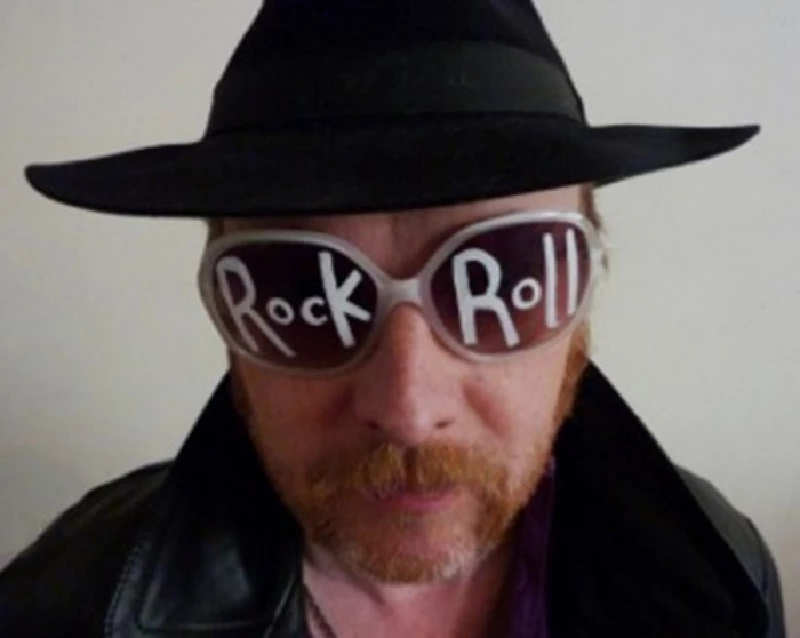
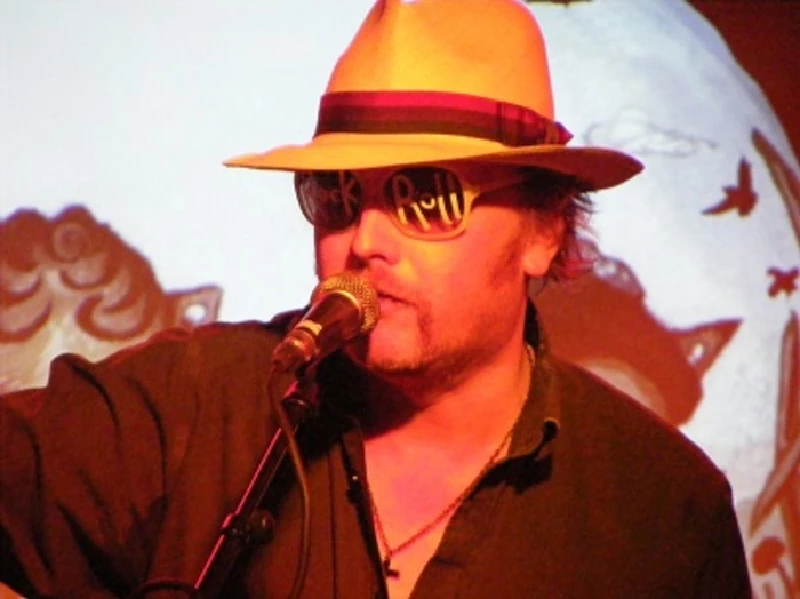
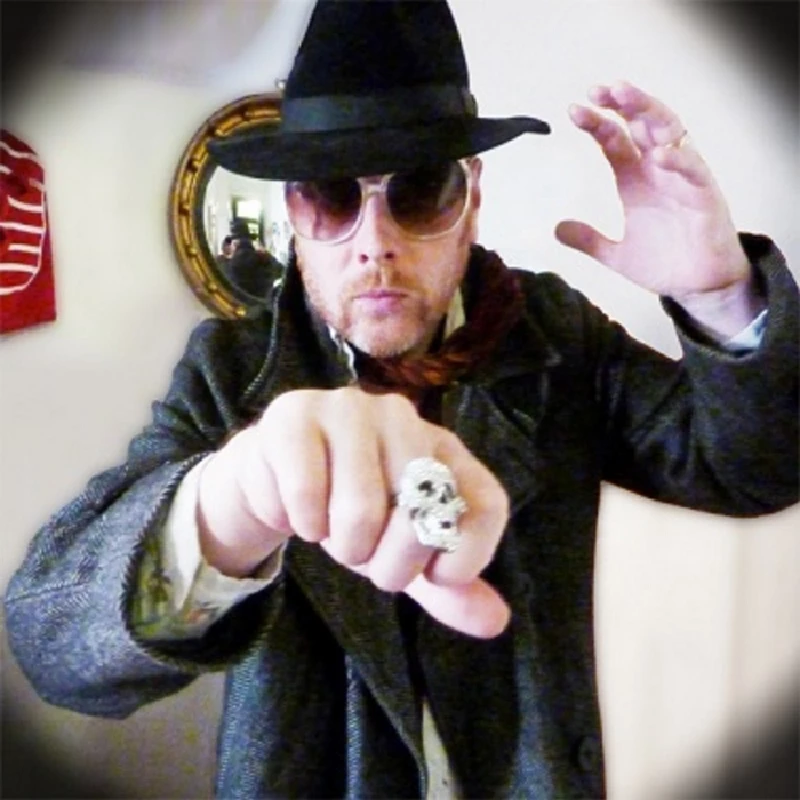
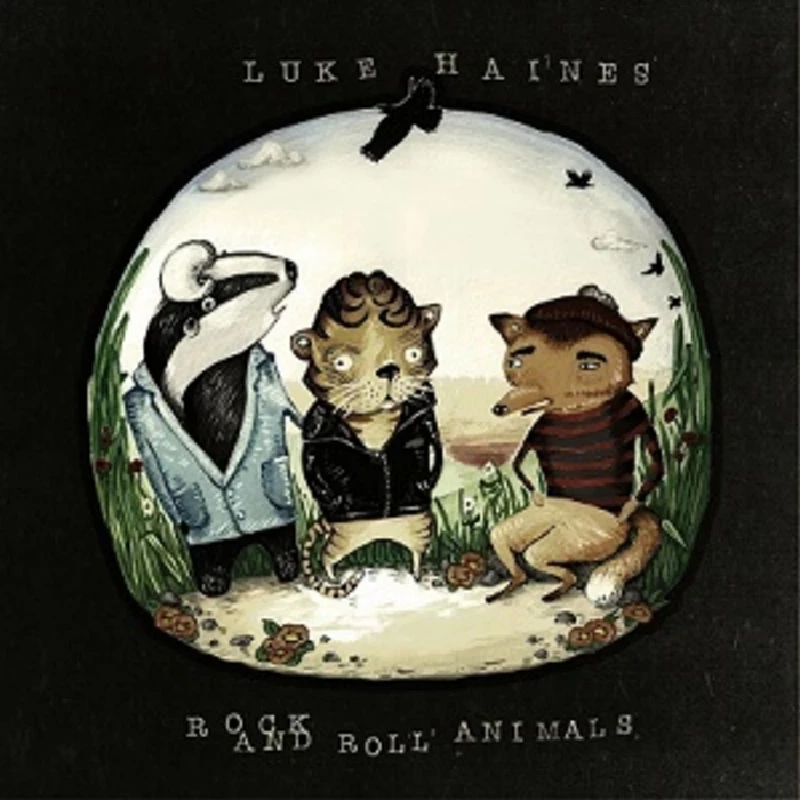
live reviews |
|
Boardwalk, Sheffield, 7/11/2006 |
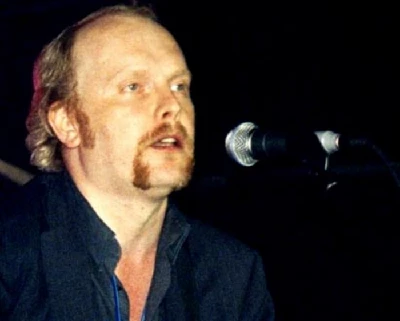
|
| Luke Haines has never chosen easy targets on which to base his song writing. Denzil Watson finds that the former Auteurs and Black Box Recorder star on typically abrasive form in an empassioned performance at the Boardwalk in Sheffield |
features |
|
Freaks Out!: Weirdos, Misfits and Deviants – The Rise and Fall of Righteous Rock ’n’ Roll (2024) |
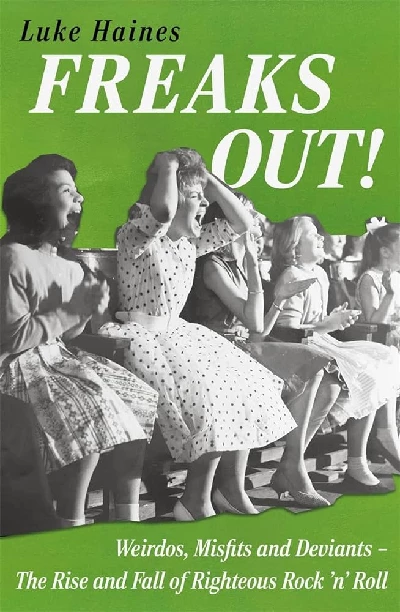
|
| In ‘Raging Pages’ guest reviewer Eoghan Lyng enjoys The Auteurs and Black Box Recorder Luke Haines’ satirical overview of pop in his first book in a decade, ‘Freaks Out!: Weirdos, Misfits and Deviants – The Rise and Fall of Righteous Rock ’n’ Roll'. |
soundcloud
reviews |
|
Adventures in Dementia (2015) |
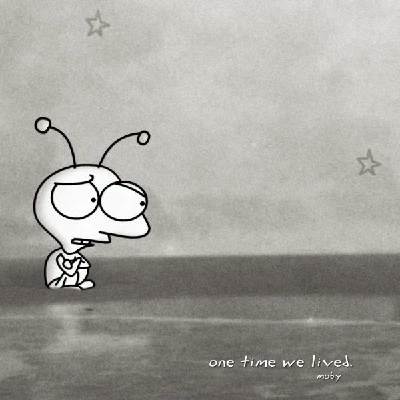
|
| Incomprehensible new mini-album from the Auteurs and Black Box Recorder’s Luke Haines |
| Rock and Roll Animals (2013) |
most viewed articles
current edition
Carl Ewens - David Bowie 1964 to 1982 On Track: Every Album, Every SongArmory Show - Interview with Richard Jobson
John McKay - Interview
Colin Blunstone - Thalia Hall, Chicago, 16/7/2025
Billie Eilish - O2 Arena, London, 10/7/2025
Bathers - Photoscapes 1
Visor Fest - Valencia, Spain, 26/9/2025...27/9/2025
Loft - Interview
Sir Tim Rice - Interview
Robert Forster - Interview
previous editions
Manic Street Preachers - (Gig of a Lifetime) Millennium Stadium, Cardiff, December 1999Heavenly - P.U.N.K. Girl EP
Beautiful South - Ten Songs That Made Me Love...
Oasis - Oasis, Earl's Court, London, 1995
Peter Perrett - In Dreams Begin Responsibilities Interview Part One
Prolapse - Interview
Coldplay - Wembley Arena. London, 16/8/2022
Boomtown Rats - Ten Songs That Made Me Love....
Trudie Myerscough-Harris - Interview
Pixies - Ten Songs That Made Me Love...
most viewed reviews
current edition
Davey Woodward - Mumbo in the JumboSick Man of Europe - The Sick Man of Europe
Lucy Spraggan - Other Sides of the Moon
Phew, Erika Kobayashi,, Dieter Moebius - Radium Girls
Amy Macdonald - Is This What You've Been Waiting For?
Bush - I Beat Loneliness
Suzanne Vega - Flying With Angels
Alice Cooper - The Revenge of Alice Cooper
Blueboy - 2
Cynthia Erivo - I Forgive You
Pennyblackmusic Regular Contributors
Adrian Janes
Amanda J. Window
Andrew Twambley
Anthony Dhanendran
Benjamin Howarth
Cila Warncke
Daniel Cressey
Darren Aston
Dastardly
Dave Goodwin
Denzil Watson
Dominic B. Simpson
Eoghan Lyng
Fiona Hutchings
Harry Sherriff
Helen Tipping
Jamie Rowland
John Clarkson
Julie Cruickshank
Kimberly Bright
Lisa Torem
Maarten Schiethart